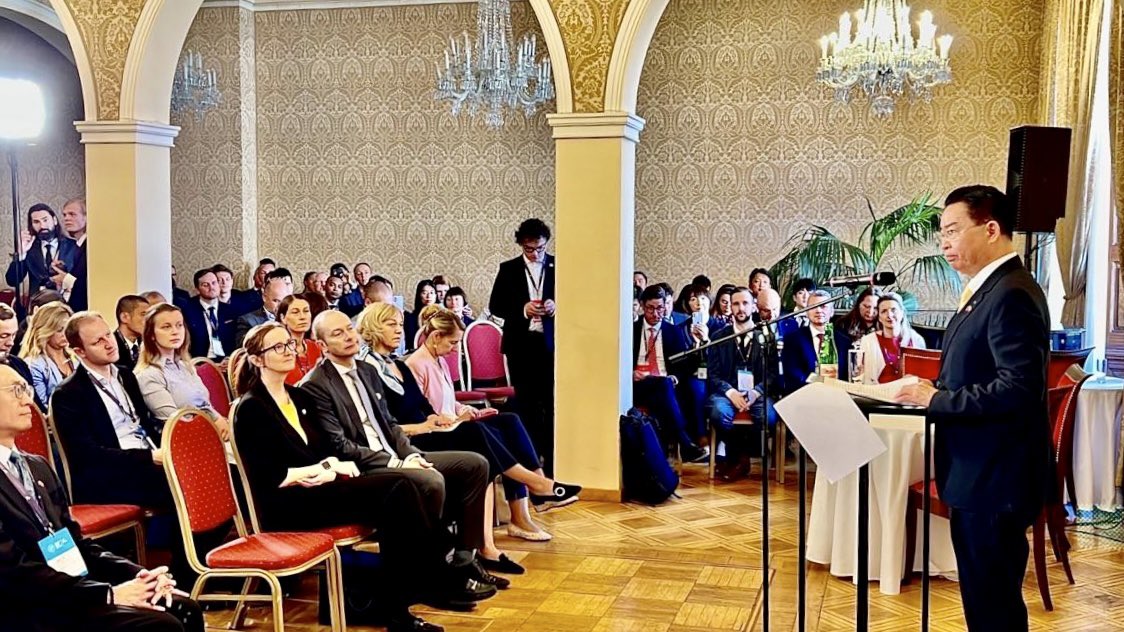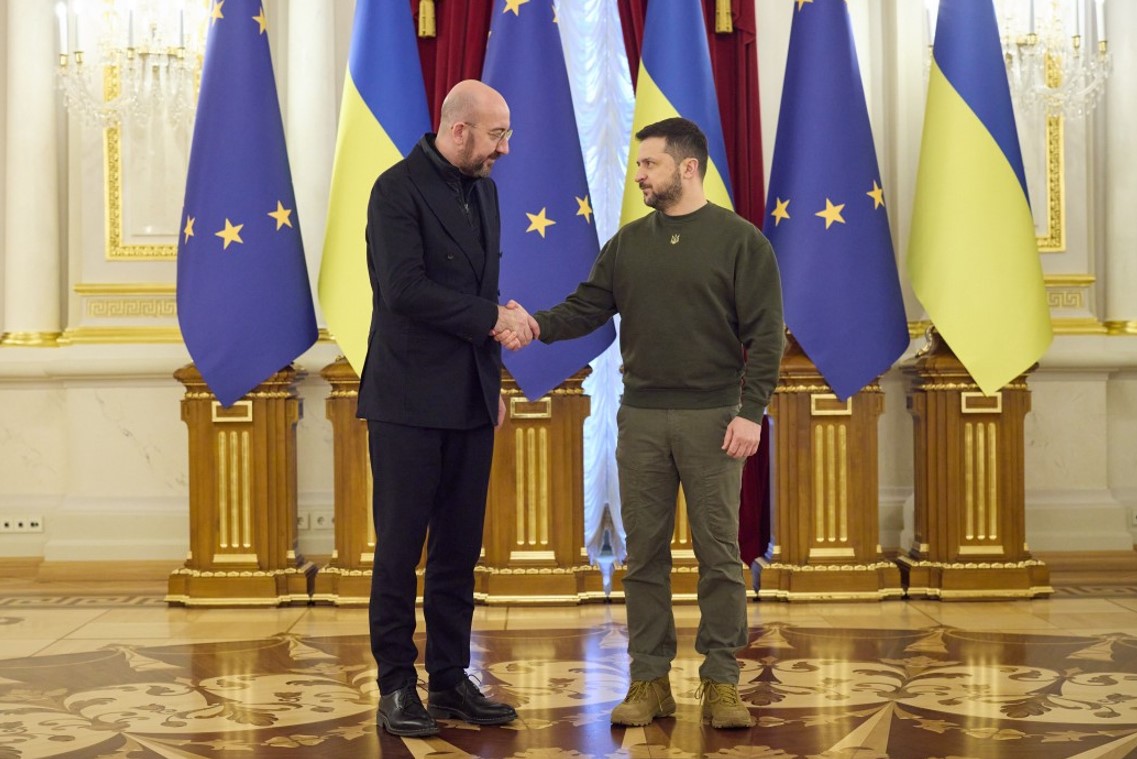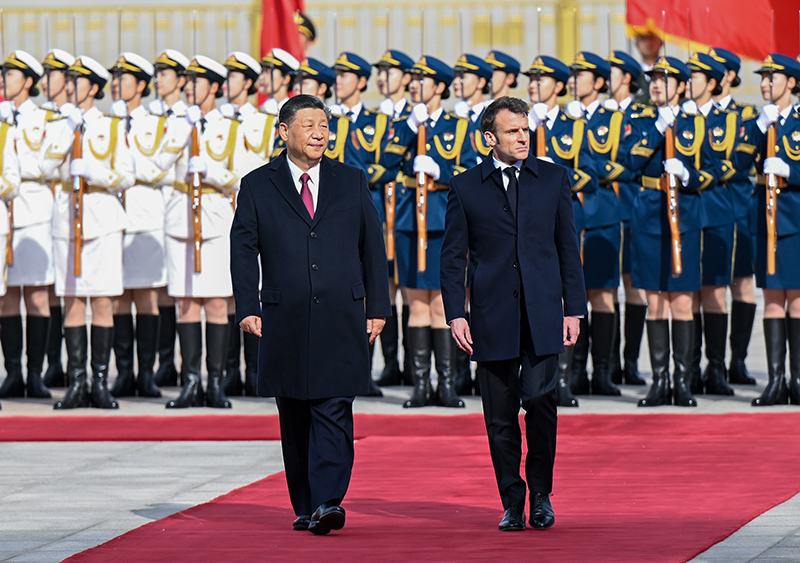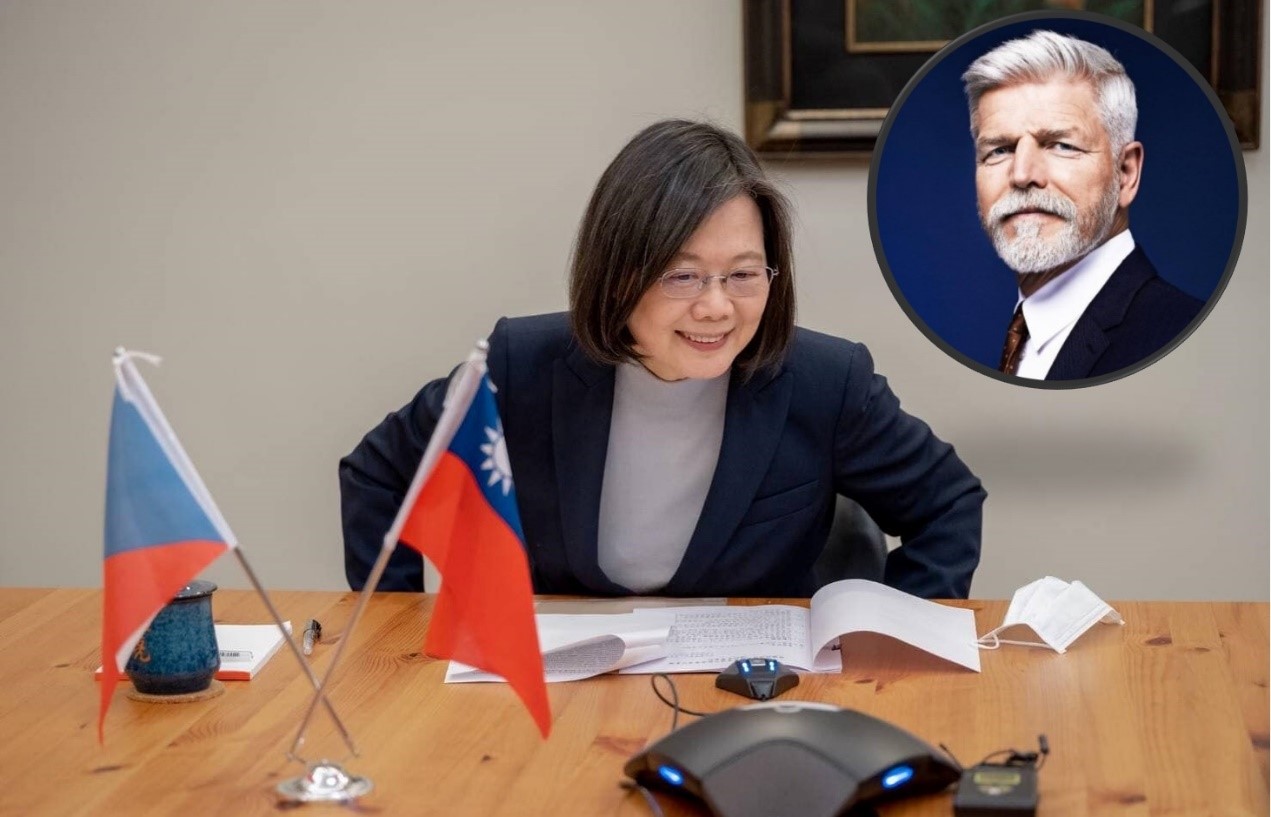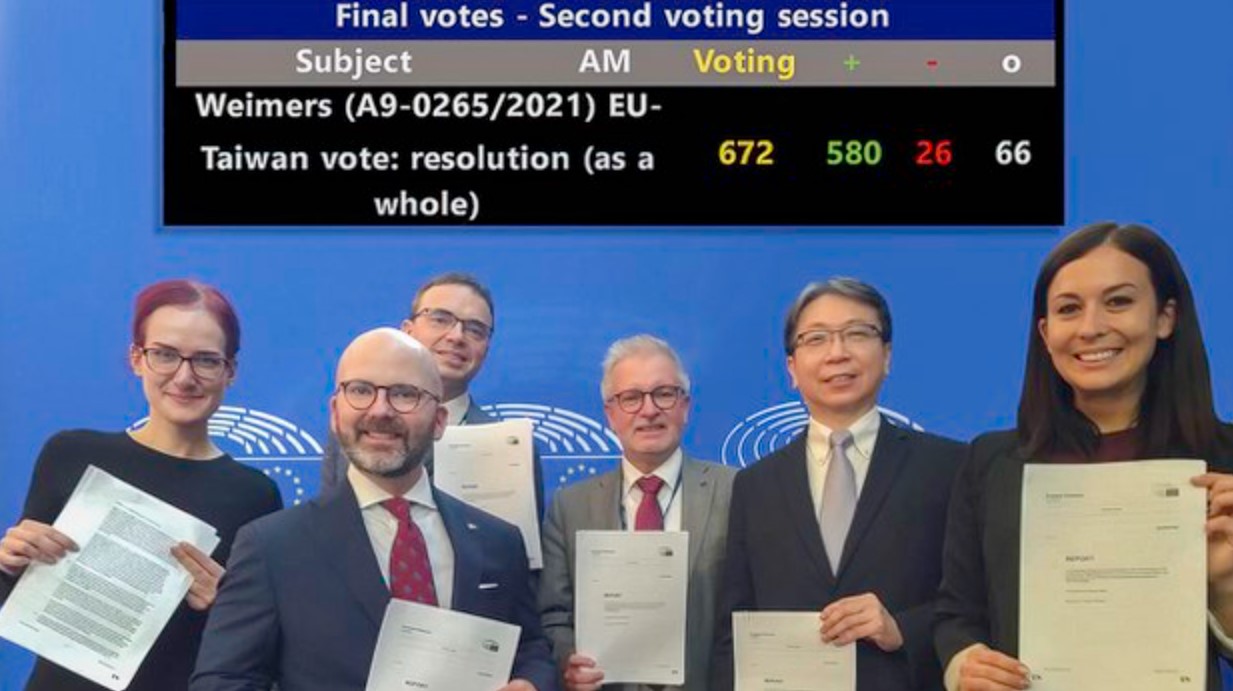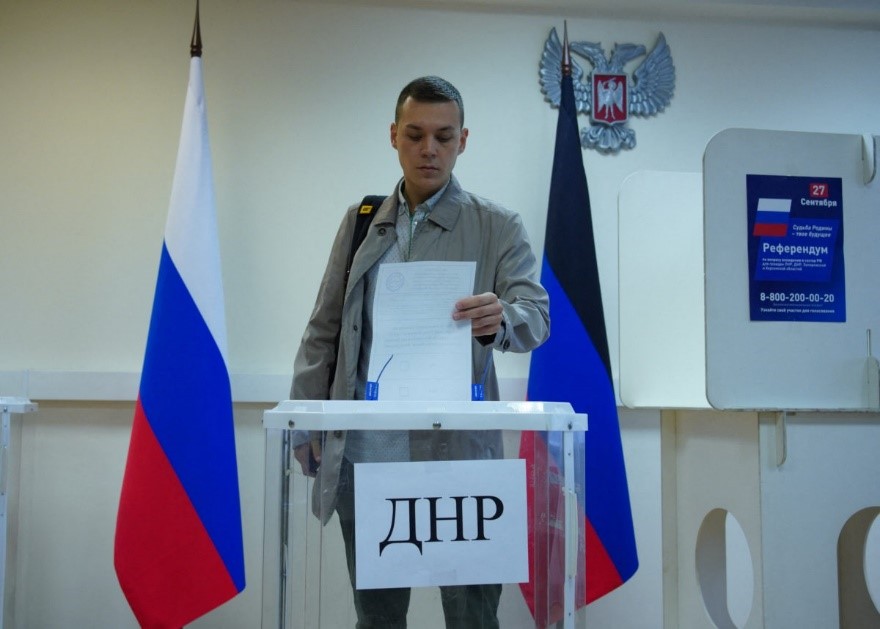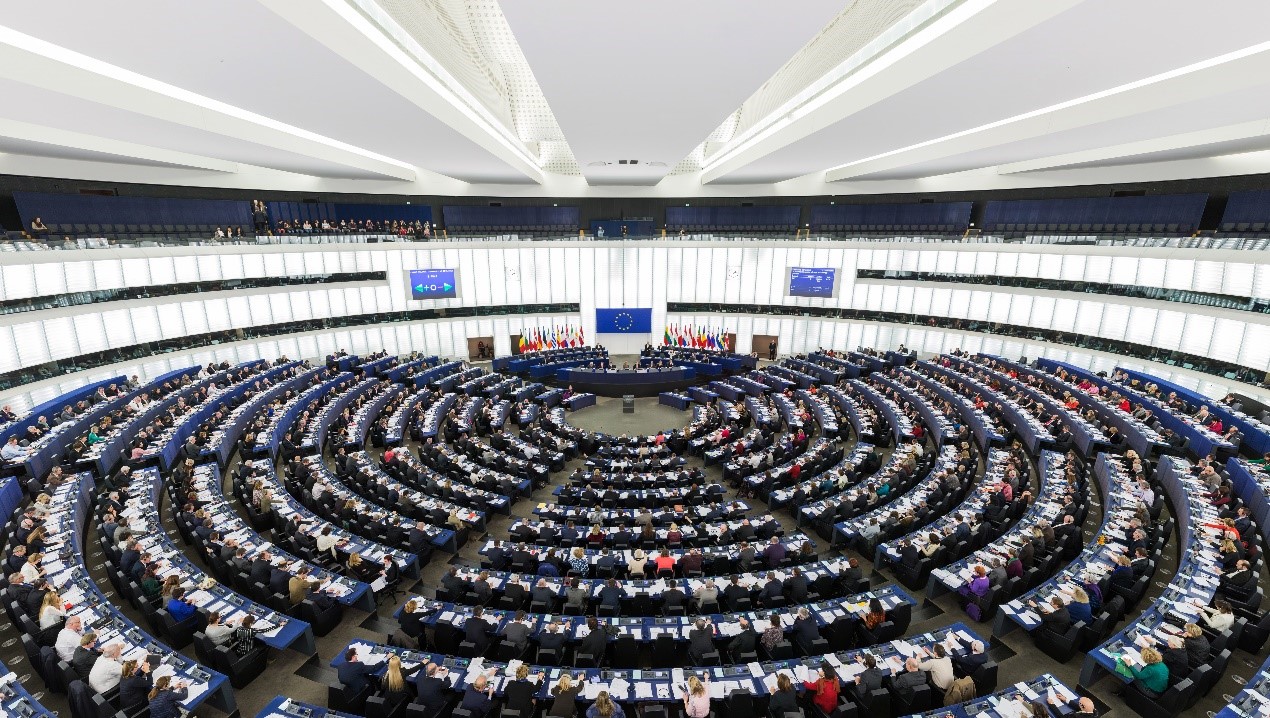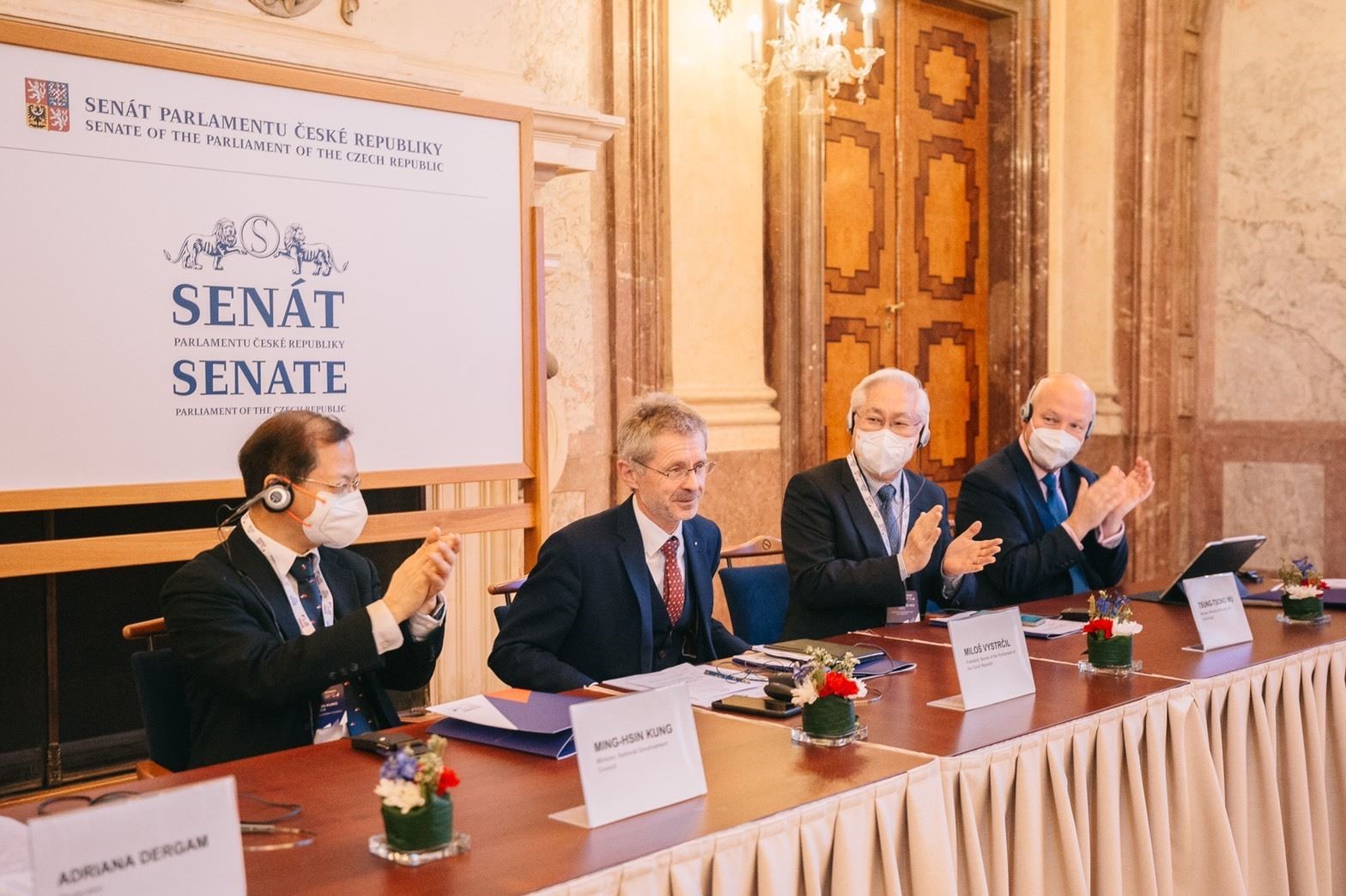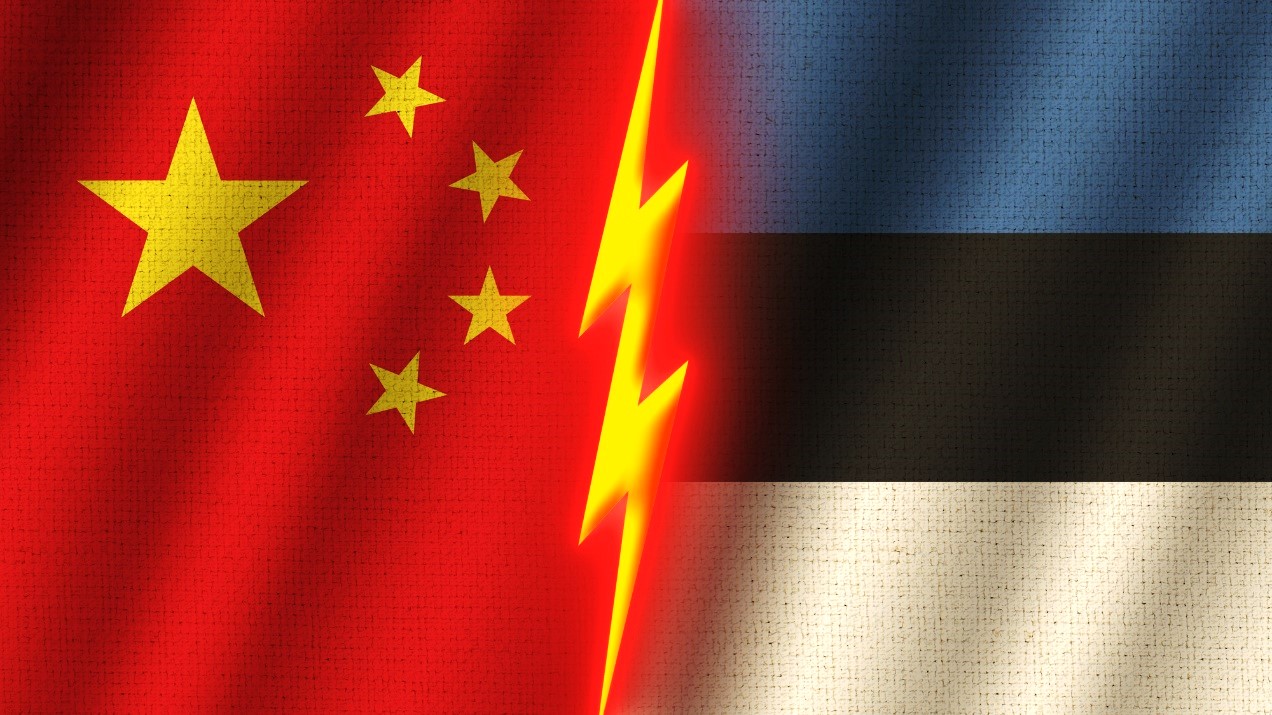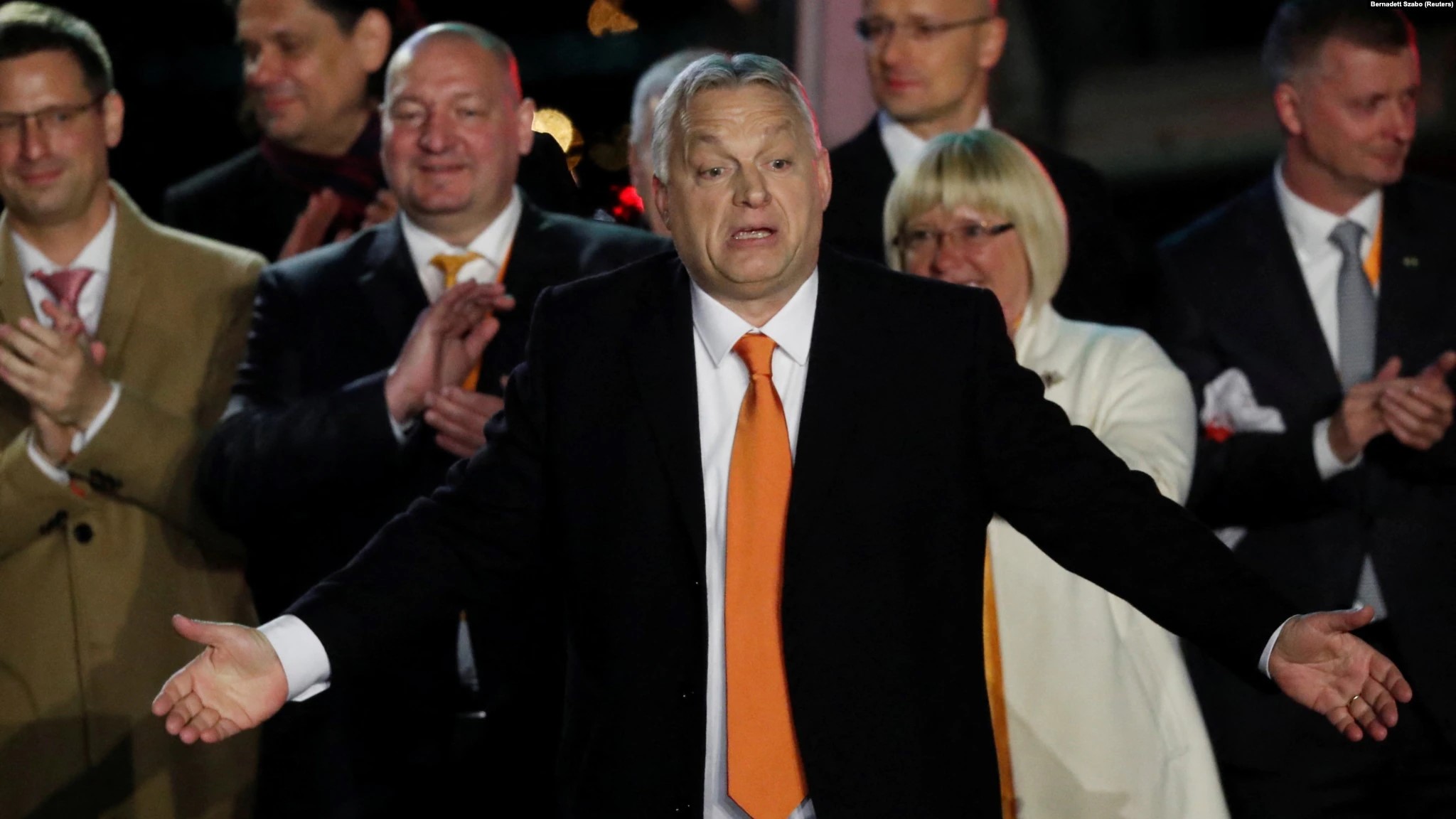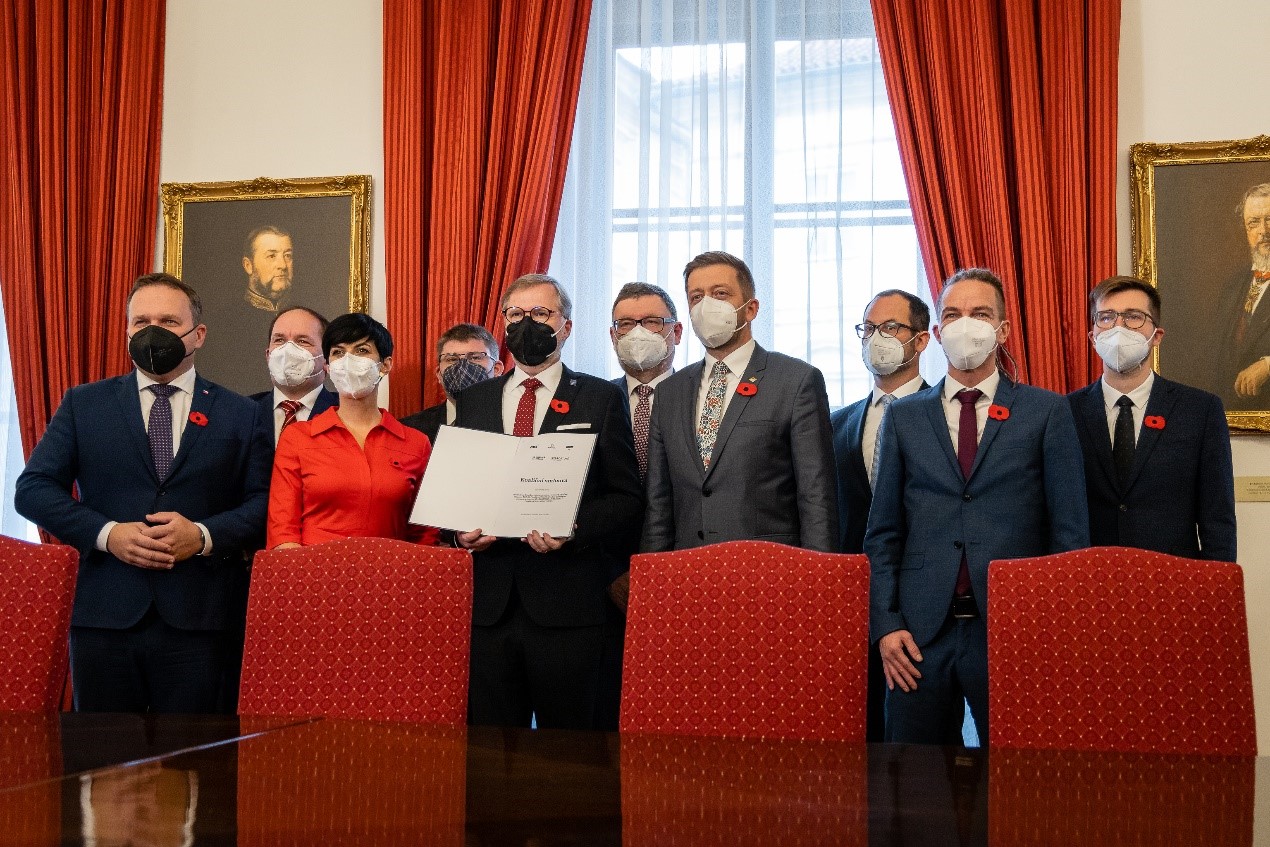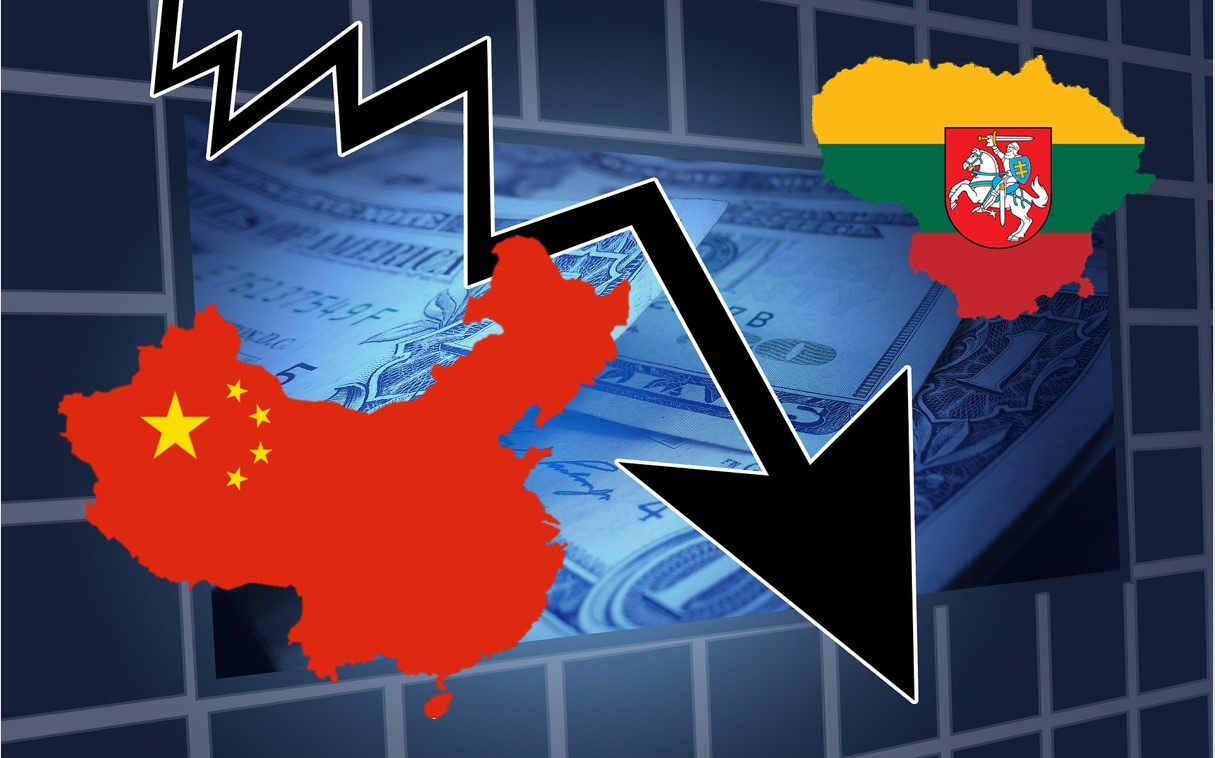Taiwan Foreign Minister Wu’s Visit to Prague, Taipei’s International Relevance Is on the Rise
On June 14, 2023, Taiwanese Foreign Minister Joseph Wu attended a summit in Prague with Czech President Petr Pavel. The media called it a “breakthrough” in Taiwan’s diplomacy, as both politicians shared the same stage despite Prague not having formal diplomatic ties with Taiwan. Picture source: MOFA of Taiwan, June 16, 2023, Twitter, https://twitter.com/MOFA_Taiwan/status/1668947184056934404/photo/2.
Taiwan Foreign Minister Wu’s Visit to Prague, Taipei’s International Relevance Is on the Rise
Prospects & Perspectives No. 38 July 14, 2023
By Anna Rudakowska
On June 14, 2023, Taiwanese Foreign Minister Joseph Wu attended a summit in Prague with Czech President Petr Pavel. The media called it a “breakthrough” in Taiwan’s diplomacy, as both politicians shared the same stage despite Prague not having formal diplomatic ties with Taiwan. While the meeting should not be regarded as an outstanding development, this was nevertheless one more step in the ongoing geopolitical changes we have witnessed for over a decade. The successes and failures of Taiwanese diplomacy can be understood only within the broader context of the geopolitical rivalry and economic competition between China and the United States.
Most Western commentators agree that since 2008, Beijing has become more assertive and bolder on the world stage amid its push to transform the international system to accommodate its new role. Back then, many still pointed to the productive, creative, and beneficial contributions China could make to global governance in general and individual international actors in particular. However, in recent years, the West has focused on the destabilizing and threatening effects of China’s rise on their economy, security, politics, values, and unity. While there were severe debates on the creation of a “G2” comprising the U.S. and China during the Obama presidency, more recently relations between the two countries have deteriorated to reach the lowest point in years. The ramping up of Beijing’s threats toward Taiwan and frequent military incursions into its air defense identification zone only fanned the flames of tension.
In parallel with the downward trajectory of Sino-U.S. relations, Washington’s appreciation for Taiwan’s evolution into a democracy and its strategic importance has been on the rise. Consequently, it has demonstrated growing support for Taipei and allowed for more high-level contacts. New voices across the political spectrum have called for an upgrade of relations.
The Russian invasion of Ukraine visibly accelerated these tendencies. Beijing’s support for Moscow contributed to the further deterioration of U.S.-China relations. The discourse about the division of the world between democratic and authoritarian states or like-minded nations and the “others” has gained prominence. President Pavel’s speech reflected on this during the event in Prague. The Czech president called for Ukraine’s support and stressed that Kyiv was not only fighting for itself, but also defended democratic values and principles. At the same time, he reminded us that “China’s long-term strategic interests and values are incompatible with ours.” Russia and China, in turn, see the rule of law, democracy, and human rights as tools promoted by the West to destabilize their regimes and perceive the world order as disproportionately beneficial to the West.
However, not all European Union (EU) member states are as critical of China as Pavel. It is challenging to get all the European countries on the same page with respect to many decisions concerning the war in Ukraine and how to engage with China. The unity “not just within the EU or NATO, but among all democratic countries worldwide” promoted by Pavel in the same speech, is still a work in progress. Due to their history of the Soviet Union domination or memory of dictatorship, the Baltic States, Poland, Romania, and voices from the Czech Republic have long warned the other members of the EU to be alert of Russia. Already in 2008, Polish President Lech Kaczyński, during the Russian aggression against Georgia, said, “Today Georgia, tomorrow Ukraine, the Baltic States the day after tomorrow, and then perhaps the time will come for my country, Poland!” The war in Ukraine intensified their threat perception — not only of Russia, but also China. The Central and Eastern European Countries (CEECs) and China drifted apart due to the democracy-versus-autocracy discourse, which, at the same time, brought the region closer to Taipei. They would agree with the statement made by Taiwan’s representative in Washington, Hsiao Bi-khim, who said during the McCain Institute’s Sedona Forum that “Ukraine’s survival is Taiwan’s survival. Ukraine’s success is Taiwan’s success,” and added that “Our futures our closely linked.” The recent CEECs’ frustration with Beijing’s unfulfilled promises of economic investment only made it easier for them to shift their approach to China.
However, the Western EU member states, primarily due to their substantial economic dependence on China, are much more cautious about reshaping relations with Beijing than the CEECs. Moreover, the trips by EU’s officials to Beijing in April and May 2023 — German Foreign Minister Annalena Baerbock, President Emmanuel Macron with European Commission President Ursula von der Leyen and Spanish Prime Minister Pedro Sanchez — revealed that the approaches to China differ even among the governments of Western European countries.
What does it all mean for Taiwan?
First, the discord within the EU and NATO is not good news for Taipei. Only unity among Western countries would send a powerful signal to Beijing.
Second, while CEECs have established themselves as close friends of Taiwan, Taipei cannot expect the same reaction from the other members of the EU. Still, even Western Europe realized the plethora of problems related to economic dependency on China and became frustrated with Beijing’s behavior on the global stage, including but not limited to “wolf warrior” diplomacy, unfair economic practices and the way it dealt with the Covid-19 pandemic, and its attitude toward China has evolved. Summarizing, we cannot expect any of them — Eastern nor Western European states, to revise their “One China” policies anytime soon, but we can see far-reaching modifications of their policies towards Taiwan, especially in the states less economically dependent on China.
Third, Western politicians have been changing the perceptions of collective identity in the last decades, and the war in Ukraine expedited this process. The identity of democratic “us,” or like-minded nations, is constructed in opposition to the authoritarian “them.” It creates favorable circumstances for Taiwan. Taipei has been recognized as a member of an international community of democratic nations, which additionally is strategically located and possesses key advanced technologies. This combination of ideological and material attributes is critical in defining the interests and shaping decisions in Washington, the EU, and Asian capitals concerning Taipei. The higher level of identification provides a channel for Taiwan’s increased international involvement and relevance.
Taiwan Foreign Minister Wu’s visit to Prague should be seen as a consequence of the changing collective identity. Another example of this trend can be found in NATO’s stepping up cooperation with the four countries in the Indo-Pacific. Japan, South Korea, Australia and New Zealand participated in the NATO 2022 Madrid Summit and in the one taking place this week in Vilnius, Lithuania. Their involvement in the alliance’s summits and other high-level meetings suggests that China and Taiwan are increasingly becoming part of the Euro-Atlantic security agenda.
Nevertheless, the practical impact of the democracy-versus-autocracy discourse in the future still needs to be determined, as the European seems not to buy into it. According to the opinion poll conducted in 11 EU member states in April 2023 by the European Council on Foreign Relations, citizens’ attitudes toward China have changed surprisingly little despite Beijing’s partnership with Kremlin and its refusal to condemn Russia’s aggression. The polls’ findings show that they “aspire to remain neutral in a US-China conflict and are reluctant to de-risk from China — even if they recognize some risks in China’s economic presence in Europe.”
(Anna Rudakowska is Associate Professor, Department of Global Politics and Economics, Tamkang University; Senior Associate Researcher, Department of Political Science, Vrije Universiteit Brussel.)


